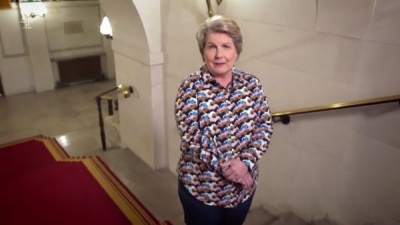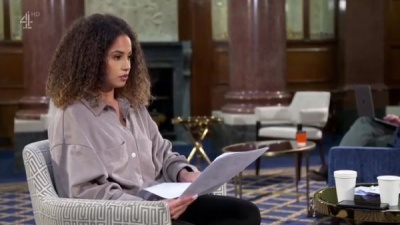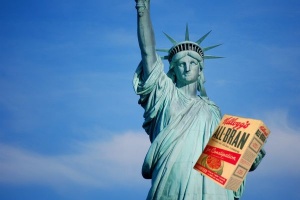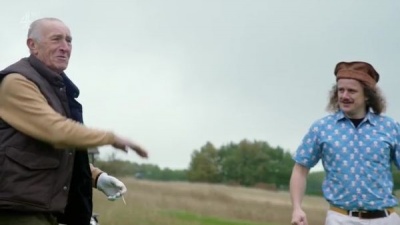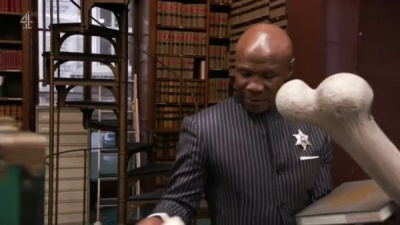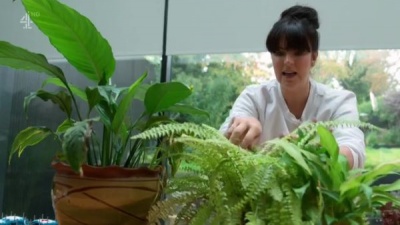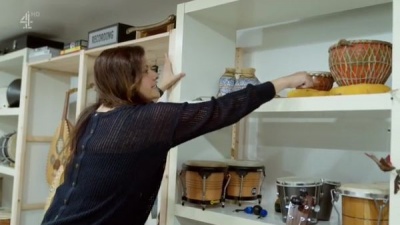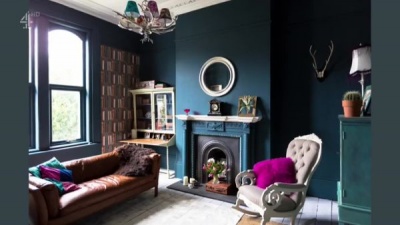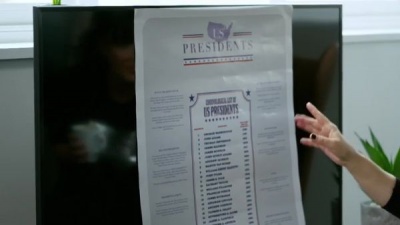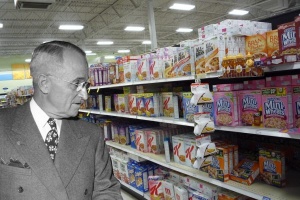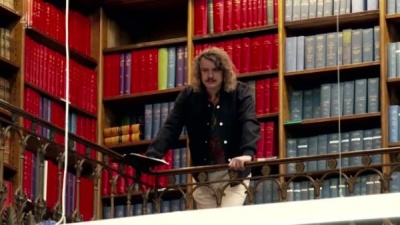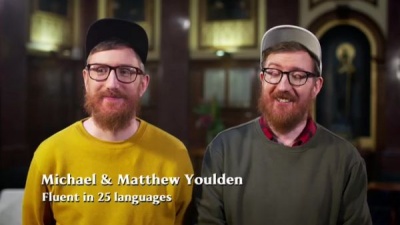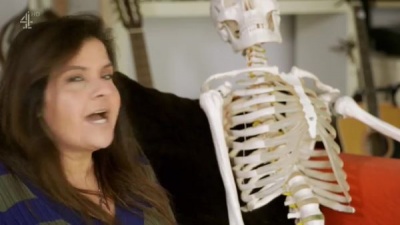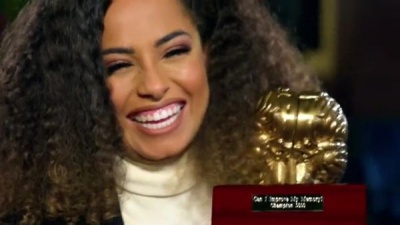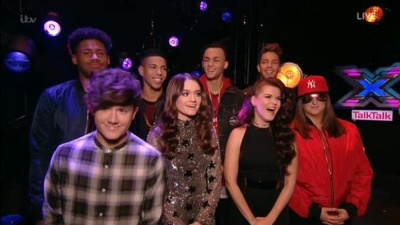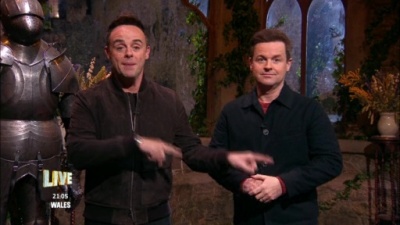Weaver's Week 2021-08-08
(Created page with 'Last week | Weaver's Week Index | Next week Slices, knife, butter, countertop. What were we going to …')
Current revision as of 09:25, 8 August 2021
Last week | Weaver's Week Index | Next week
Slices, knife, butter, countertop. What were we going to review this week?
Contents |
Can I Improve My Memory?
Avalon Factual for Channel 4, 15 July – 5 August
Five celebrities (Chris Eubank, Amber Gill, Len Goodman, Anna Richardson, and Nina Wadia) are given a week to learn a dossier of facts about something they know nothing about. To help, memory experts Ed Cooke and Dr Tharaka Gunarathne will share some tips and tricks to help them remember.
How is this a contest? After the week, Sandi Toksvig asks our celebrities a series of questions about the information they have learned. Other tests are sprung on the players, and the lowest scores leave the contest, until a winner emerges at the end of the series.
The objective behind Can I Improve My Memory? is twofold. One, to make television worth watching. Two, to impart useful information in an entertaining format. We're playing, and we're learning. No, don't turn off and watch Love Island!
In the first week, our players learn about the "visualisation" technique. It's to make a dull fact more vivid in your mind. For instance, you might want to remember the capital of New York state, which is Albany. What absurd image might help that stick in your mind?
Now we'll never forget that the capital of New York is Albany. Nor will the contestants. Each has an early chat with Ed or "Doctor T", who helps them to fix some of the facts in their mind. "The sun is a yellow dwarf star", so the image is a small yellow glowing thing. We got the impression that Dr T made it a little harder than it might have been.
We spent ten minutes getting to know the technique, then two parts following the contestants at home. Some get other tips, like using physical movement to fix ideas in the mind.
The show finishes with a quickfire round, matching names to faces. "Find meaning in the name, and in the face, and meld them together." This is Lucy, for instance, and she's got her head stuck in a loo seat.
For these quickfire rounds, questions were assigned to each person. 2 points for a correct answer, with no penalty for an incorrect guess. Errors are opened to the others for a 2 point bonus, but two points are deducted for a mistake on the buzzers. "Buzz with caution", cautioned Sandi.
Week two asked the players to learn a speech by a great orator – Shakespeare, Churchill, Jane Austen, Martin Luther King, er, Mick Jagger. The recommended technique: the Memory Palace. It's another method to associate images – this time with locations in a familiar environment, such as your kitchen.
The taps on the sink, there's two of them, "To be, or not to be." Does the waterspout look like a punctuation mark, "That is the question." Look out the window and it's sunny... "Weather 'tis nobler in the mind to suffer"... and children are shooting projectiles, it'll cost a bomb if it hits the window... "The slings and arrows of outrageous fortune". And then we turn round, "And by opposing end them?"
And so on, and so on. When we retrace the route around the kitchen, the words should come back in the right order. And if the symbols are strong enough, the recital will be word-perfect. That was the aim of the main study, with five points for a perfect delivery, and a point deducted for every error, however piffling.
We noted how some of the best contestants combined ideas. Anna Richardson, for instance, went round her kitchen and built some physical movements into her routine. Not strictly part of the memory palace technique, but whatever works. Can I Improve My Memory? was a pragmatic series, it wanted to get results and didn't insist on a particular skill. This makes it distinctive amongst skills tests on television, often contestants are told what to do and how to do it.
The second short-term memory test was to remember details of a room: its contents, its furniture, colours and objects and locations. The key, apparently, is to say what you see. Has our telly broken, have we suddenly started watching Stephen Mulhern's Celebrity Catchphrase with Stephen Mulhern with Stephen Mulhern? No!
Say what you see is the way to remember what's in a room, or a fast-moving scene. Narrate your way through it.
Room in Channel 4 teal, with sash windows opening at the bottom. A brown leather sofa, with a brown rug and turquoise cushion. Fake book wallpaper and a real dresser with glass panes. A circular mirror over a small black clock, a rose and an embroidery of a butterfly on a mantelpiece over a fire – with flowers in it, and something small on the bottom. And so on, and so on. Lots of muttering.
The lowest score across the first two episodes leaves the contest at this stage. Scores are reset for the survivors.
Week three covered the "memory peg" technique, a way to remember ordered lists. For instance, we might be asked to memorise the order of American presidents, and a fact about them. And we might combine this with the "memory palace" technique, and use the aisles in our local hypermarket, which we know far too well.
One president per aisle gives George Washington chopping down the apples in aisle 1. John Adams finds an alien amongst the potatoes in aisle 2. In aisle 8, Martin van Dustpan and Buren; in aisle 11 Dot Warner is dancing with a bottle of bleach called James. Grover Cleveland pops up in men's clothing (aisle 22) and women's clothing (aisle 24), fair dos. Harry "S" Truman is staring at Special "K" in the cereal aisle 32.
Some chump drove a Ford into the milk on aisle 38, and in aisle 42 we find Bill Clinton amongst the sausages. (We then need to extend the store to complete the list: pharmacy counter, coffee shop, toilet, man waving us out the door. In order not to break this sequence, we're backing Otto Mattic-Daws for president in 2028.)
Dr. T wasn't impressed with this idea, it might not work in the quiz. The quiz? Sandi's audition for the Mastermind job, two minutes of rapid-fire questions on the lists and the associated facts. To an experienced quizzer, these were not difficult questions: questions on the summer Olympics and on the presidents would likely fall under "general knowledge" on Mastermind.
The quick-fire round was about Sandi's shopping list, remembering the item and its price – or its offer. The lowest score in this week's programme leaves the show. The remaining contestants are asked to learn a foreign language in a week.
Which brings us to the final programme, and a problem. Channel 4 hadn't been watching their own programme, and forgot to put it in the schedule at 8pm. It eventually turned up at 10 o'clock, full of apologies, and with something on its breath to make us think it's been hanging out with Only Connect.
The final take-home challenge was to learn a language in a week. One contender got Portuguese, from "Amor pelos dois" to "Três tristes tigres" ("love conquers all" to "three sad tigers"). One contender got German, "Ein bisschen Frieden" to "Blamieren oder Kassieren" ("a little peace" to "haven't we got something more interesting to do"). And one contender got Danish, the most useful phrase being "Hvor har bolden tredive fem gået denne gang?".
Language experts were brought in to help with the tactics: Learn, immerse, communicate. Learn all the vocab, using all the tricks from the previous week. Numbers can go in the memory cloakroom, physical ideas into the memory hypermarket, examples of abstract nouns into the memory kitchen.
Immerse by listening to a lot of speech in the language, to get the intonations and thought patterns, and subconsciously absorb some of the language. (Can I Improve My Memory? didn't address subconscious training, or hypnosis, it's too complex a subject for a four-part series.) And converse by speaking the language. It's the area where everyone's favourite green Language Learning Owl falls down, it can never ask learners to respond to a prompt in the language.
A live test can be done as a conversation, and most of the marks were from an unscripted conversation. There was also a test of vocabulary, and of the ability to pronounce a tongue-twister in the target language.
The best performers went through to the tray test: remember and recall as many unrelated objects as possible. For this last task, the contestants were on their own, and could use any method they liked. The memory cloakroom, jamming two items onto each peg? The storytelling method? The Stephen Mulhern "say what you see" method?
In the event, a winner emerged in the competition, and a trophy was presented. And, by our standards, that makes it clearly a game show.
Can I Improve My Memory? has an atmospheric location, the wood-panelled halls and studious atmosphere of The Law Society building. It has a classical-esque soundtrack, composed by John Lemke. And it's filled with techniques we can describe – and quite possibly use in regular life. We've enjoyed the show, though we might not watch another series.
The Ex Factor
ITV has confirmed what we all knew: The X Factor is holed below the waterline, and even Simon Cowell has left the sinking ship. There won't be a new series this year, there won't be a new series next year, and ITV's rights to the format expire in 2023.
In retrospect, The X Factor provided the soundtrack to the download era. From 2004 until 2017, we mostly bought music through I-tunes and its alternatives. Pay 79p, and we'd get our new favourite song to keep forever. It was convenient – much more convenient than going to Woolworths to pick up the CD single. And we got a collection of files to keep growing. And we had to love the songs we'd bought, because there was some friction to getting new music – it cost money, and that made it slightly scarce. Only the richest people in the world could download every song.
The X Factor was at home in this model. The show let us connect with the performers. We could cheer for Jedward and Cher Lloyd, we could back Matt Cardle and Alexandra Burke. We could buy their songs as soon as we'd seen them on the telly, show our love at pocket money prices, and follow the winner's celebratory single towards Christmas number one.
But in 2014, the record industry chose to pivot to streaming. Slowly at first, then as fast as an avalanche, the rights-holders wanted to turn recorded music into a service. No longer would we buy individual tracks, we'd buy access to every song ever made. We can stream the song we've just seen by Saara Aalto, but it's as visible as everything Saara Aalto has ever recorded. And everything by Tuure Kilpeläinen, and everything by Antti Railio, and everything ever made. While the television show still let us connect with the performer, it was increasingly disconnected from the rest of the world. It felt insincere, inauthentic, left us uninspired.
We still get to keep the music, and some of the stars. We'll always have Leona Lewis. We'll always have Alexandra Burke, Lucy Spraggan, and Joe McElderry. We'll remember Only the Young, future Eurovision star Kitty Brucknell, and Eoghan Quigg. We enjoyed The Jls and One Direction while they lasted, and hope there's another chapter in the Little Mix story. Jedward remain legends in their own breakfast. Olly Murs did well for himself, and Rylan Clark-Neal jumped from The X Factor to Celebrity Big Brother to every show everywhere.
In other news
I'm a Celebrity is to return to Gwrych Castle near Abergele. It's the second year in a row they've broadcast from the Mediaeval zone, following almost two decades playing the same six games in the Jungle zone. We wait for Ant and Dec to learn how to breathe underwater so everyone can be in the Ocean zone.
Surely it's a bit early for the Strictly Come Dancing klaxon to be sounded? They might at least have waited for the Superspreader Sports Day to finish. But no, the first celebrities are Tom Fletcher (from Bungalow house band Creamy Muck McFly), Rhys Stephenson (from the CBBC Massive), and AJ Odudu (from Apocalypse Wow, which we'll review in a few weeks). They're joined by Robert Webb (comedian, the tall one from Mitchell and Webb) and John Whaite (baker).
No news on a second edition of Quizmaster in English, but we do have news of a francophone version. Cyril Féraud will host Champion des Champions on France 2.
Two weeks of Quizzy Mondays. On Only Connect, the Jukeboxers beat the Apollos after a storming performance on Missing Vowels. Apollos had the lead in the early exchanges, and could easily have claimed five points on their very first question, daughters named after their fathers. But you'll never bet against any team that can keep their head above water in the walls, and the Jukeboxers storm Missing Vowels by 11-2. Great result for the team who met on The Chase.
Golfers had the better of Wildlifers, after putting up a very strong performance in the opening rounds. They picked up a bonus on the Pirates of the Caribbean films despite having never watched an episode. Enjoyed the shout-out to top quizzing Shauns, Williamson and Wallace, and the ghost wall group of 6 Music DJs.
University Challenge had Hertford Oxford beat the London Business School by 180-100. National emblems in the Soviet style, and 90s dance records sampling films, are enough to make anyone feel old. Emmanuel Cambridge went up against St Andrews, and the Fife side won by 140-135 having been headed for most of the evening. Some very slow conferring went unremarked by the host, and as much as we hate to leap to the "he's favouring Cambridge" point, the host does seem to have a soft spot for his own university.
Next week's Week plans to review ITV's Saturday evening show The Void. Before then, Celebrity Masterchef comes back (BBC1, from Mon), with contestants to tickle everyone's fancy. Nigel Havers welcomes us back to The Bidding Room (BBC1, weekdays), and though The Wheel has stopped for now, Take Off continues (BBC1, Sat).
Pictures: Avalon Factual, SyCo/Thames, Granada. Some elements licensed under CC-BY: Celso Flores, ltdan, Rex Roof, Kheel Center of Cornell University Library.
To have Weaver's Week emailed to you on publication day, receive our exclusive TV roundup of the game shows in the week ahead, and chat to other ukgameshows.com readers, sign up to our Google Group.


